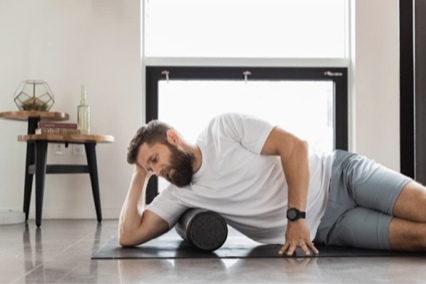Articles, In the Press, Internal Medicine, Jenni Tarma, Mental Health, Resources, Yoga Medicine® News
The Benefits of Outdoor Workouts
By Sarah Munn for Weight Watchers.
With the heat of summer upon us, you may be feeling the urge to get outside more and there are tons of benefits if you do.
“Exercising outdoors has significant benefits, both from a mental and physical standpoint, says Jenni Tarma, a Yoga Medicine® Therapeutic Specialist and teacher for Yoga Medicine Online, the founder of Kaari Prehab, and a lifelong athlete who has always found a sense of connection and focus through movement.
Boost Your Mood, Protect Your Mental Health
“Getting some fresh air and sunshine is an instantaneous mood-booster in and of itself,” says Tarma. “More specifically, exposure to sunlight promotes vitamin D synthesis.”
She explains that many people are thought to be vitamin D deficient, and low levels of the vitamin are known to be a contributing factor to depression.
“So, making sure you’re getting some sunshine on a regular basis is a great way to maintain your mental health, in the short term and the long run.”
Get Social Time
Being active outside is a great way to get some social interaction in as well, especially since most of us still have to observe physical distancing and mask wearing indoors.
“Research has also shown time and time again that people who engage in frequent social interaction tend to be happier than those who don’t,” says Tarma. “While we can of course catch up with friends in indoor fitness classes, many of us are still required to wear masks and maintain social distance in indoor workout situations, which can inhibit interaction. Being outdoors, on the other hand, generates social connection almost by default. Whether you’re hitting the trail solo and exchanging a friendly smile and wave with fellow hikers, or joining a group run with a more explicit, intentional social component, you’re virtually guaranteed to interact with like-minded folks, almost as an effortless by-product of your workout.”
Challenge Your Body and Mind
Of course any workout has physical benefits, but working out outside is particularly good for us because the outdoor environment itself challenges our bodies in new ways, Tarma explains.
“Walking or running on uneven terrain, for example, forces the stabilizing muscles of the foot, leg, hip and core to engage in new and slightly unpredictable ways – something that doesn’t happen in a controlled indoor environment, much less a Stairmaster or treadmill. Even briefly hanging from playground monkey bars builds upper body and grip strength, which many of us are woefully deficient in.”
She adds, “This type of variability not only stimulates desirable adaptive changes in those tissues as they strengthen in response to these challenges, but it also helps to keep us neurologically sharp as the nervous system figures out efficient ways to navigate the environment and co-ordinate these movements.”













